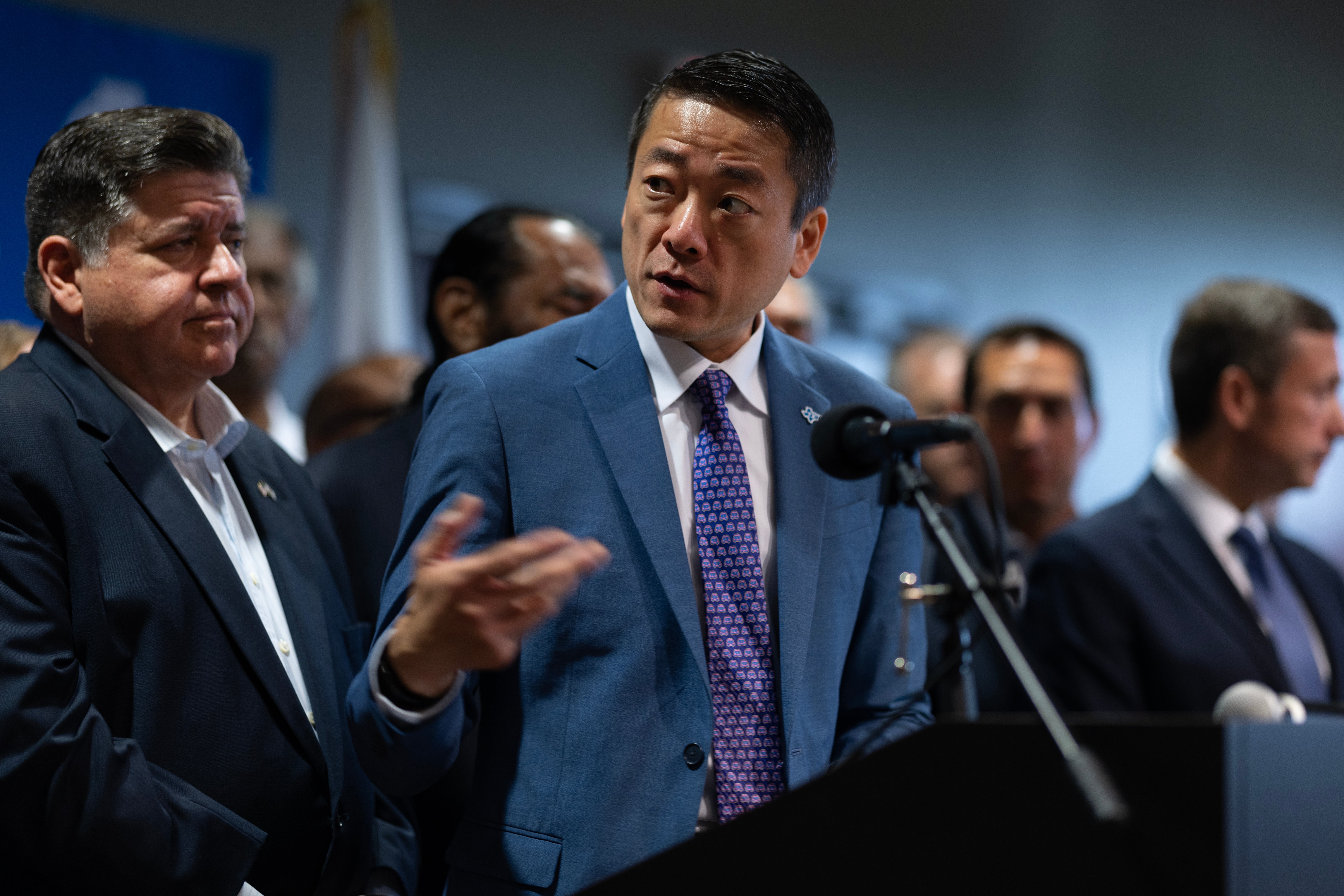Republican Senator John Cornyn is calling on the FBI to track down and arrest Texas Democrats who left the state to derail a vote on new congressional districts explicitly designed to elect more Republicans to Congress.
In a letter to FBI Director Kash Patel on Tuesday, Cornyn requested the agency’s help to “locate the out-of-state Texas legislators who are potentially acting in violation of the law.”
“The FBI has tools to aid state law enforcement when parties cross state lines, including to avoid testifying or fleeing a scene of a crime,” he added.
Democrats did not break the law by denying the Texas House of Representatives a quorum. Texas House rules allow lawmakers to issue civil arrest warrants to force members back to the capitol, but leaving the chambers is not a criminal offense, and federal law enforcement does not have authority to compel lawmakers to come back to Texas.
But Cornyn, echoing claims from Texas Republicans, has accused Texas Democrats of “potential criminal acts” — including bribery or “other public corruption offenses” — for allegedly receiving monetary support to leave the state until the end of a 30-day legislative session.
The senator’s allegations have escalated law enforcement threats against Texas lawmakers who are protesting a GOP plan, requested by Donald Trump, to redraw political boundaries in the hopes of electing five more Texas Republicans into the House of Representatives in next year’s midterm elections.
Trump on Tuesday claimed he is “entitled” to those seats.
The office of Governor Greg Abbott, who launched the legislative session to explicitly approve the new congressional maps before 2026 midterm elections, said he supports Cornyn’s move.
The governor has said that the use of campaign funds to help pay for hefty fines for “truancy” amounts to bribery. On Monday, he called on the Texas Rangers to investigate his allegations as well as “potential legal violations connected to their refusal to appear for a quorum, conduct business, and cast votes.”
Abbot “fully supports using all necessary tools to discover potential legal violations connected to their refusal to appear for a quorum, conduct business, and cast votes,” his office said in a statement.

Texas Republicans failed to reach a quorum a second day in a row on Tuesday while more than 50 Texas Democrats remain in Illinois, New York and elsewhere.
“This is not a decision we make lightly, but it is one we make with absolute moral clarity,” Democratic state Rep. Gene Wu said from Illinois on Sunday night after leaving the state with several other Democrats.
On Monday, state Republicans voted in favor of their arrest. Republican House Speaker Dustin Burrows said he would immediately sign civil warrants for those missing Democratic members, giving the greenlight to the chamber’s sergeant-at-arms and state troopers to make arrests and bring them to the state Capitol.
The warrants only apply within state lines, making the legislative threats a largely symbolic maneuver.
The House met for roughly five minutes on Tuesday before adjourning.
“It is evident to the chair that [the Department of Public Safety] will need some time to work, and we will try again to make quorum on Friday,” Burrows said.
Burrows met with state law enforcement officials on Tuesday morning to discuss how to enforce the warrants.
“The Texas Constitution requires members of the Legislature to show up, and Texans expect us to do our jobs,” Burrows wrote on X. “I remain fully committed to obtaining a quorum and resuming the business of the Texas House.”
Following Monday’s vote, Texas Attorney General Ken Paxton said he is “prepared to do everything in my power to hold them accountable because these liberal lawmakers are not above the law.”
“It’s imperative that they be swiftly arrested, punished, and face the full force of the law for turning their backs on the people of Texas,” he said.
Texas Democrats had similarly left the state in 2021 to protest Republican-backed voting restrictions. After nearly five weeks on the road, enough lawmakers returned home to establish a quorum, and the measure passed.
Republican lawmakers had similarly tried to force back missing Democrats at the time, though they obtained a court-ordered injunction blocking their arrest.
The state’s Supreme Court later struck down the injunction, finding that while the state Constitution “enables ‘quorum-breaking’ by a minority faction of the legislature, it likewise authorizes ‘quorum-forcing’ by the remaining members.”







